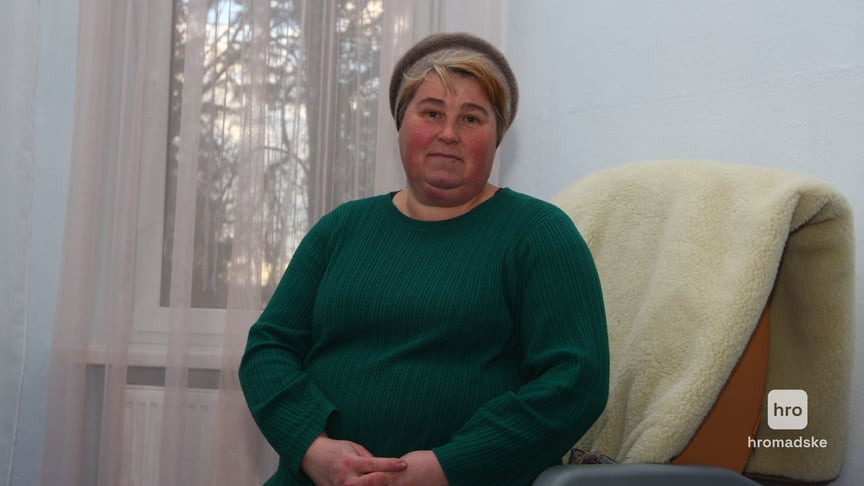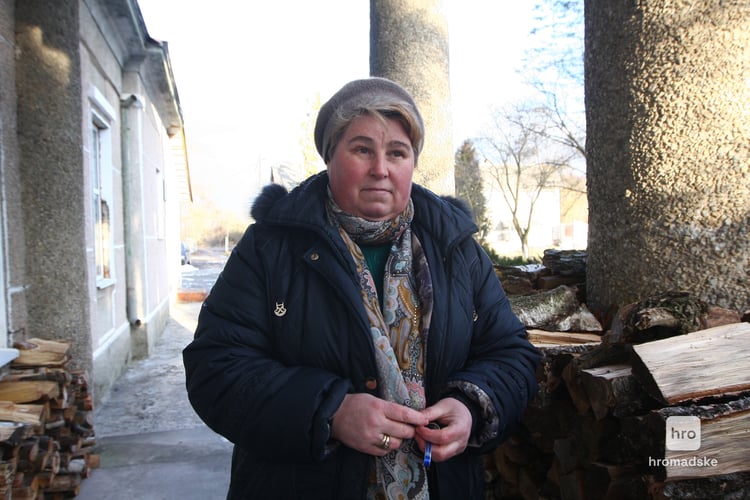"I sought answers from God about my son's death and found them." - The mother of pilot Stepan Tarabalka, known as the Ghost of Kyiv.

Collaboration with God
As long as she can remember, Natalia has been praying.
“My grandmother had a twin sister. And she had a romance with a Bandera member, acting as a liaison in their camp. Meanwhile, my grandmother fell in love with a guy sent by the Soviet authorities to fight the Bandera members,” Natalia recounts. “Soon, my aunt’s camp was exposed; they found a typewriter, leaflets, and sent her to Siberia. Before that, they lied, saying my grandmother had betrayed her! And from then on, they lived in such hatred for each other!”
For years, Natalia prayed and fasted for her sisters to reconcile. Finally, they both turned eighty. Her granddaughter tried to persuade them: “Grandmother, this is your blood, no one is closer than you, you come from the same mother, live in harmony.” And she prayed fervently once again.
The next time she visited her grandmother, she found her caring for her ailing sister at home. They reconciled and soon passed away one after the other in peace.
With the onset of Russia's invasion of Crimea and Donbass, Natalia began inviting people to pray together in various churches—gathering in one place to pray for peace. But unexpectedly, she faced condemnation: they said there was no need to impose someone else's beliefs; they had their own prayers. The woman felt disheartened: this was a temple, where, if not here, should they not listen with respect and respond with love?
“Why is there no understanding even between churches, among confessions, even though everyone reads the Bible? Yes, we are all different, but we should unite in faith in God,” the woman lamented.
Not long after, Natalia moved to Portugal for work and began attending a local church.
“My perspective changed. I stopped praying to the icons and all the saints. I began to speak directly to God. We had a very active priest who organized many prayers, and I still remember one of his words: ‘Lord, make me an instrument of your peace.’ It struck me so deeply that I started praying every day: ‘Lord, use me for others.’”
Before sleeping, reflecting on her day, the believer realized that she had encountered exactly those whom she was meant to communicate with.
“I spoke to them not what I had in mind, but words that seemed to come from somewhere else. It turned out that these were precisely what that person needed. This was how a collaboration with God emerged.”
“Repent of Your Sins!”
On March 13, 2022, her faith cracked. That day, her 29-year-old son died in battle over the Zhytomyr region.
At Stepan's funeral, Natalia held herself together and supported everyone. How could she not? Her husband was falling apart (later, he would spend nights at their son's grave), her mother suffered a third stroke, and her brother was too grief-stricken to stand—he loved his nephew dearly.
Natalia was the only rock: steadfast and composed. In the evening, she went into her room, fell onto the bed, and immediately thought: “Let them carry me out of here to the cemetery.” Then came a second thought: “I must do something.” She didn’t know what or how, but she realized that Stepan had performed a heroic deed—and that would give her strength. As his command had told her, on the very first day of the great war, he shot down six enemy planes. And his comrades added: “He wasn’t just one of the first—he was the first.”
The days passed primarily in work: she immersed herself in volunteer activities, buying vehicles and bulletproof vests for the military, and building a wellness center for soldiers in Prykarpattia—her long-held dream. There were also days when she daydreamed and cried, wrote her poems, thoughts, and listened to sermons. Because even though she was angry with God, she sought answers: why did Stepan die?
For months, she turned to therapies, retreats, and various spiritual practices, seeking comfort from people. One time, she went to a church where the bishop was officiating. Natalia prepared for confession. “I lost my son,” she said. “I would like to talk about it.” “When was the last time you confessed?” the priest pressed. “I confessed before my baptism in another church.” “That’s a sect. You need to renounce what you did there.” “Listen, I don't have a great sin. That's not why I'm here. My son died in the war, and I'm in such a state that I can barely stand,” the woman replied.
But the bishop persisted: there is no God in those churches, and “repent, woman!” Natalia said goodbye: “I must have made a mistake.”
However, this unpleasant situation proved useful when, at one of the workshops attended by many priests, one admitted: “Sometimes I don’t know what to say to a mother who has lost a son.” Natalia stood up, shared her experience, and advised: “If you don’t know, stay silent. Listen to the person about what is in their heart and pray for them. That’s all.”

“I Want to Be a Support for Others”
Little by little, she came to understand: without the Lord, she could not bear her grief. It would crush her. And the moment came when she asked openly: “I surrender; take my heart and do with it what you think is best.”
And wonderful encounters began to happen in her life:
“I didn’t know your son,” a stranger approached her, “but he did everything he could—for the state, for all of us. You must respect his choice. It is worthy to carry this through life.”
Then her godmother hugged her: “If you hadn’t come back from Portugal in the early days of the war and if Stepan hadn’t died, you wouldn’t have helped so many people. God has his plans.”
One day, she met another mother who had also lost a son. She echoed Natalia’s old words: “I’m angry at God; I can’t pray.” But Natalia was now able to pray for the stranger. She envisioned a picture in her head: a beam of light from above over this woman, while she was shielding herself from it. And it was all from darkness.
“I explained to her that perhaps her son is sending light, or maybe it’s God. ‘Whatever the circumstances, he is with you. Just accept it,’” Natalia interpreted the vision.
And unexpectedly, she had a revelation: she wanted to support people, as she had before her son’s death, but even deeper.
This was confirmed once again. One time, she attended psychological rehabilitation with women similar to herself.
“Those who had experienced loss earlier were sitting made up and dressed up, and us, the newcomers with fresh pain, were surprised. But the mothers looked at us with tears, with understanding, and suddenly I realized: they had lost their sons a long time ago, and I hadn’t done anything for them. But here I was in trouble, and they were right beside me. I felt: I want to be a support for such mothers and wives. And I prayed: ‘God, place me at your heart so close that I can feel the pain of others as you do,’” the woman sincerely shares.
In the wellness center she opened after her son's death in a renovated hospital, soldiers gather. The idea was this: a place for their own, in a village in Prykarpattia, where it is cozy and calm. The defenders requested that the name not include the words “rehabilitation” and “psychology.” They named the wellness center “The Warmth of the Winged Soul.” Natalia wanted it to have a family atmosphere, not a hospital one: fishing, tennis, checkers, chess, massage. If you want, you go for treatments; if you don’t want to, you don’t go. The main thing is sincere communication.
Now, certified doctors work at the facility, treating soldiers both outpatient and inpatient. Families can come along. Recently, they established their own farm. Natalia is already filled with ideas on how to purchase the old club and collective farm office next